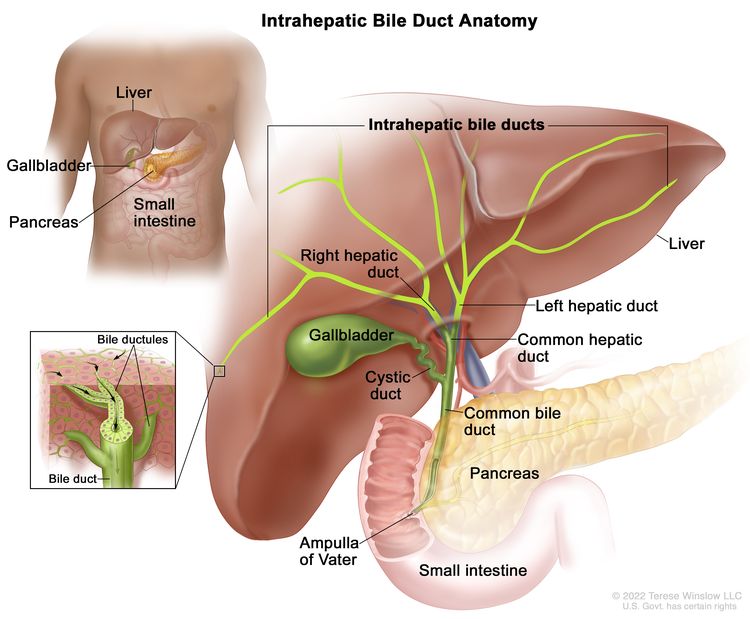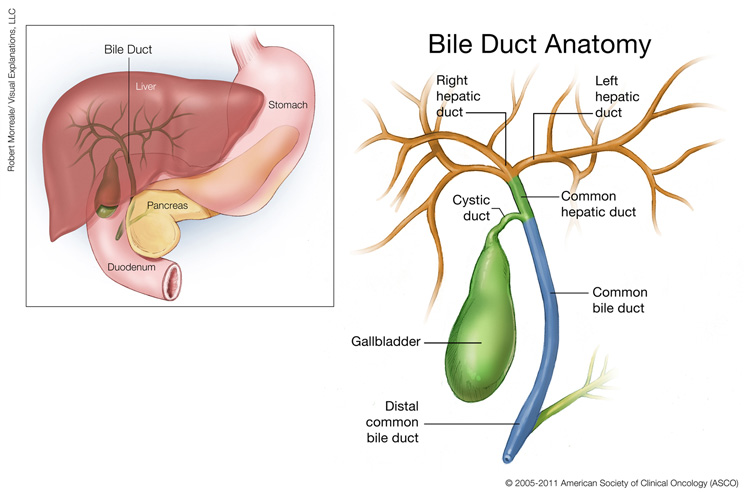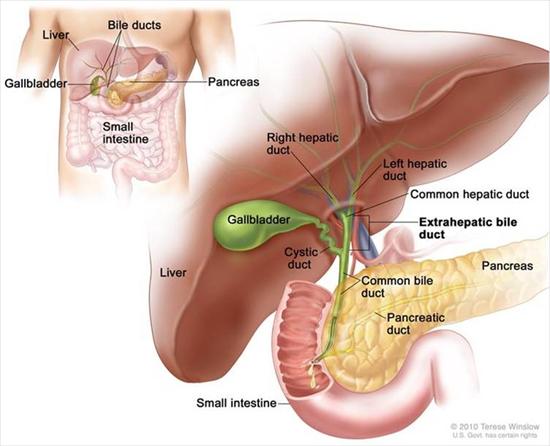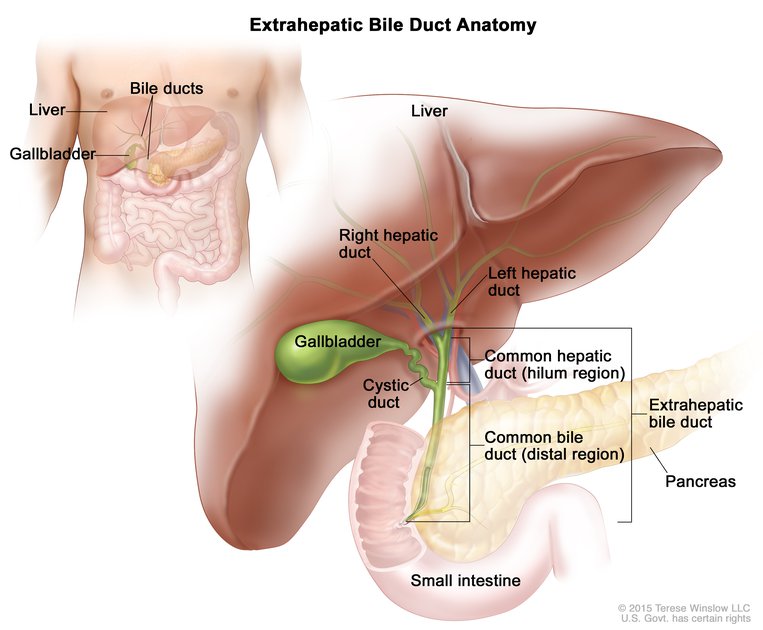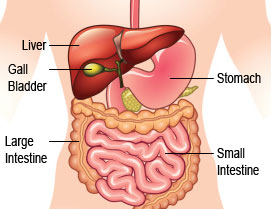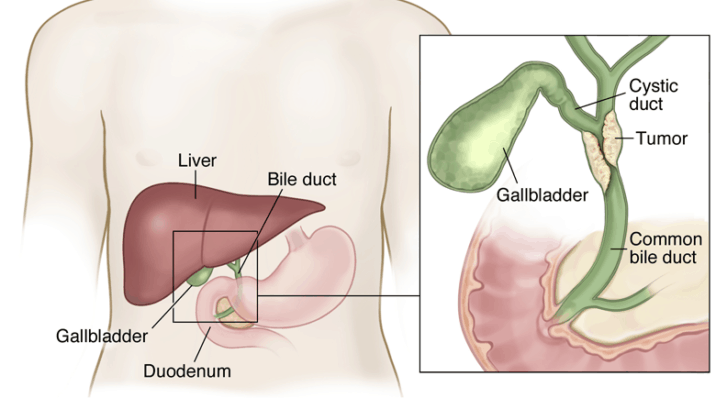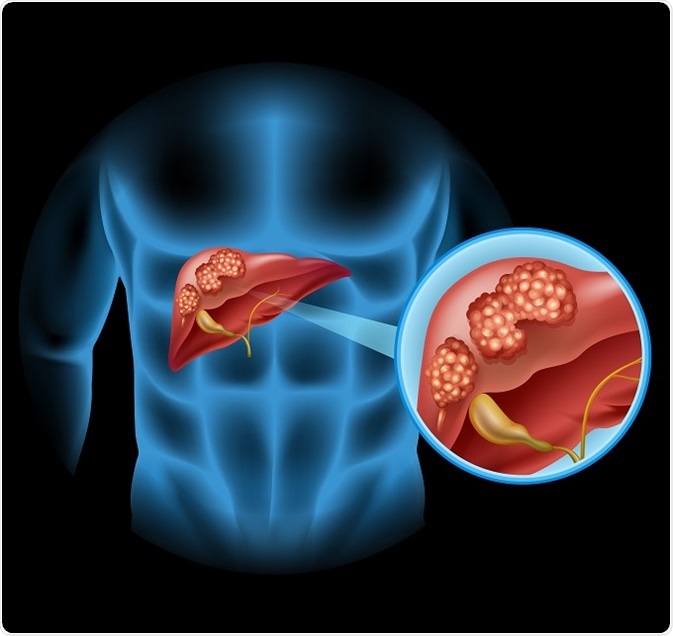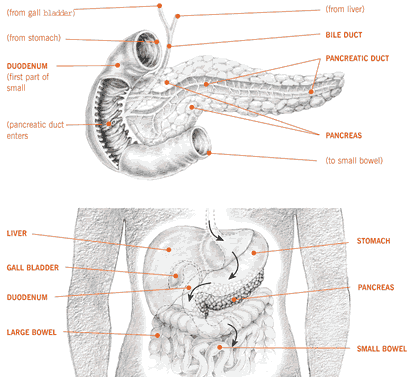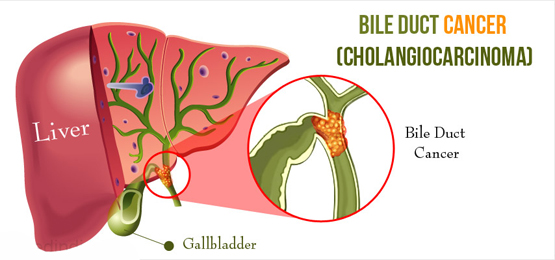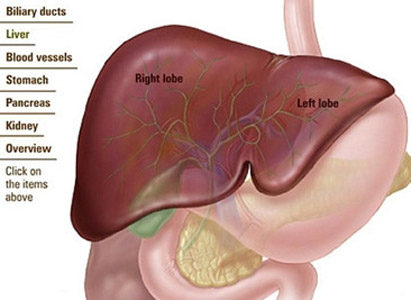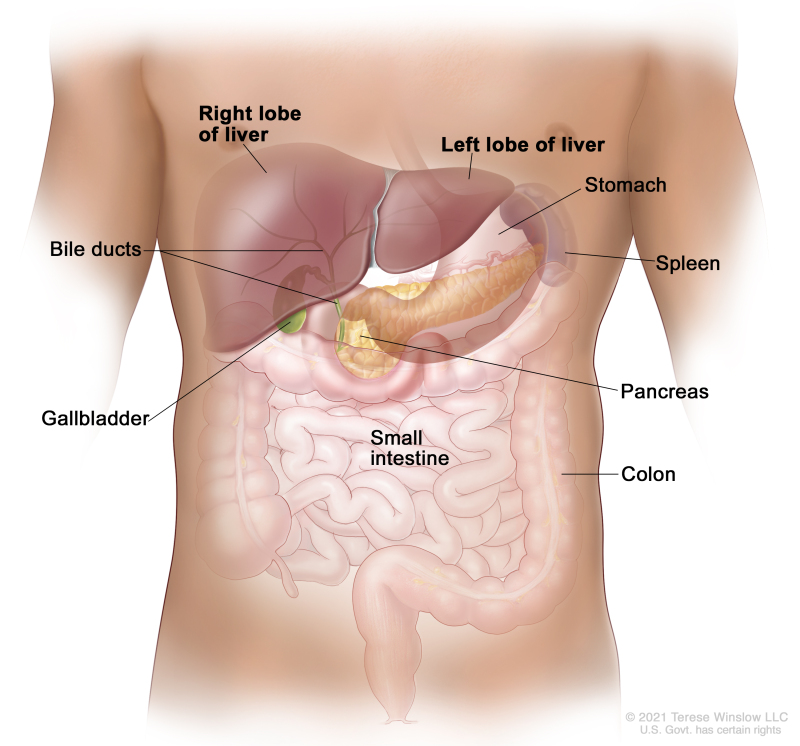A network of tubes called ducts connects the liver gallbladder and small intestine this network begins in the liver where many small ducts collect bile a fluid made by the liver to break down fats during digestion the small ducts come together to form the right and left hepatic ducts which lead.
Stage 4 bile duct cancer spread to liver.
This condition also known as bile duct cancer is an uncommon form of cancer that occurs mostly in people older than age 50 though it can occur at any age.
They are divided into.
Cancer cells are found in nearby lymph nodes but the cancer has not spread to distant sites.
Bile duct cancers tend to spread locally along the bile duct.
The cancer is growing and has spread to the main blood vessel and the lymph nodes but not distant sites.
Bile duct cancer arises from the cells that line the bile ducts the drainage system for bile that is produced by the liver bile ducts collect this bile draining it into the gallbladder and finally into the small intestine where it aids in the digestion process.
Cancer can t be cured at this point but there are still treatment options.
It is sometimes referred as metastatic hepatic carcinoma.
Stage iv perihilar bile duct cancer is divided into stages iva and ivb.
Stage 4 pancreatic cancer means the cancer has spread to other organs typically the liver or the lungs.
Cholangiocarcinoma is cancer that forms in the slender tubes bile ducts that carry the digestive fluid bile.
Surgery for bile duct cancer is a.
The cancer has spread outside the bile ducts to nearby structures or lymph nodes.
Bile duct cancer is a rare disease in which malignant cancer cells form in the bile ducts.
Bile duct cancer is also called cholangiocarcinoma.
Stage 4 liver cancer has been indicated as one of the most fatal cancer.
A locally advanced cancer might have grown into the liver small bowel pancreas or major blood vessels.
The stage 4 liver cancer is eventually the last stage of the cancer and the survival chances of the victim largely decrease at the stage due to complicated scenarios.
5 year relative survival rates for bile duct cancer.
Cancer has spread to other parts of the body such as the liver lung bone brain skin distant lymph nodes or tissue lining the wall of the abdomen and most organs in the abdomen.
The cancer has spread to distant parts of the body such as the lungs.
Lung cancer can spread to any region of the body but most commonly spreads to the liver the lymph nodes the brain the bones and the adrenal glands.
Stage iv stage 4 bile duct cancer.
With small cell lung cancer it would be classified as an extensive stage.
Cancer has spread to 4 or more nearby lymph nodes.
The tests you had to stage your cancer shows whether surgery might be possible.
Bile duct cancer is a rare form of cancer with approximately 2 500 new cases.
This can mean that surgery is not an option it is unresectable.
For people with non small cell lung cancer the spread of cancer to the liver would classify it as a stage 4 cancer.


